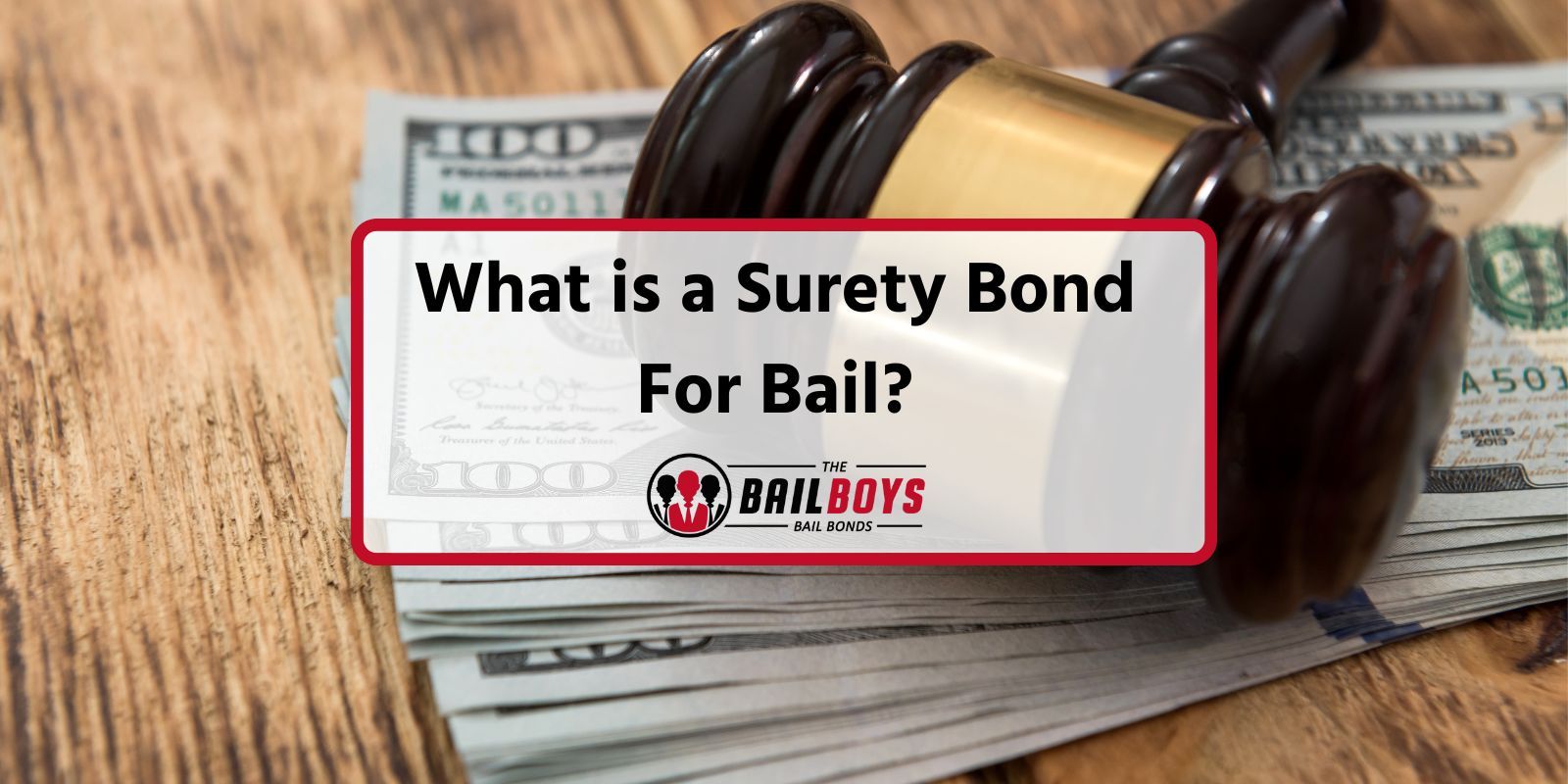
What is a Surety Bond for Bail?
You’ve heard of bail bonds, but what is a surety bond for bail and how does it work? In this blog post, we’ll discuss everything you need to know about surety bonds for bail, compare them with cash bonds, and guide you through the process of obtaining one. You’ll be well-equipped to make an informed decision and help your loved one secure their freedom. Are you ready? Let’s dive in!
An Overview of Surety Bail Bonds
- Surety bonds provide an accessible and affordable option for defendants to meet their bail requirements.
- All parties involved in a surety bond benefit from the secure process of guaranteeing defendant’s presence at court dates.
- Obtaining a surety bond is straightforward, with flexible pricing options available to fit any budget or circumstance.
Understanding Surety Bonds for Bail
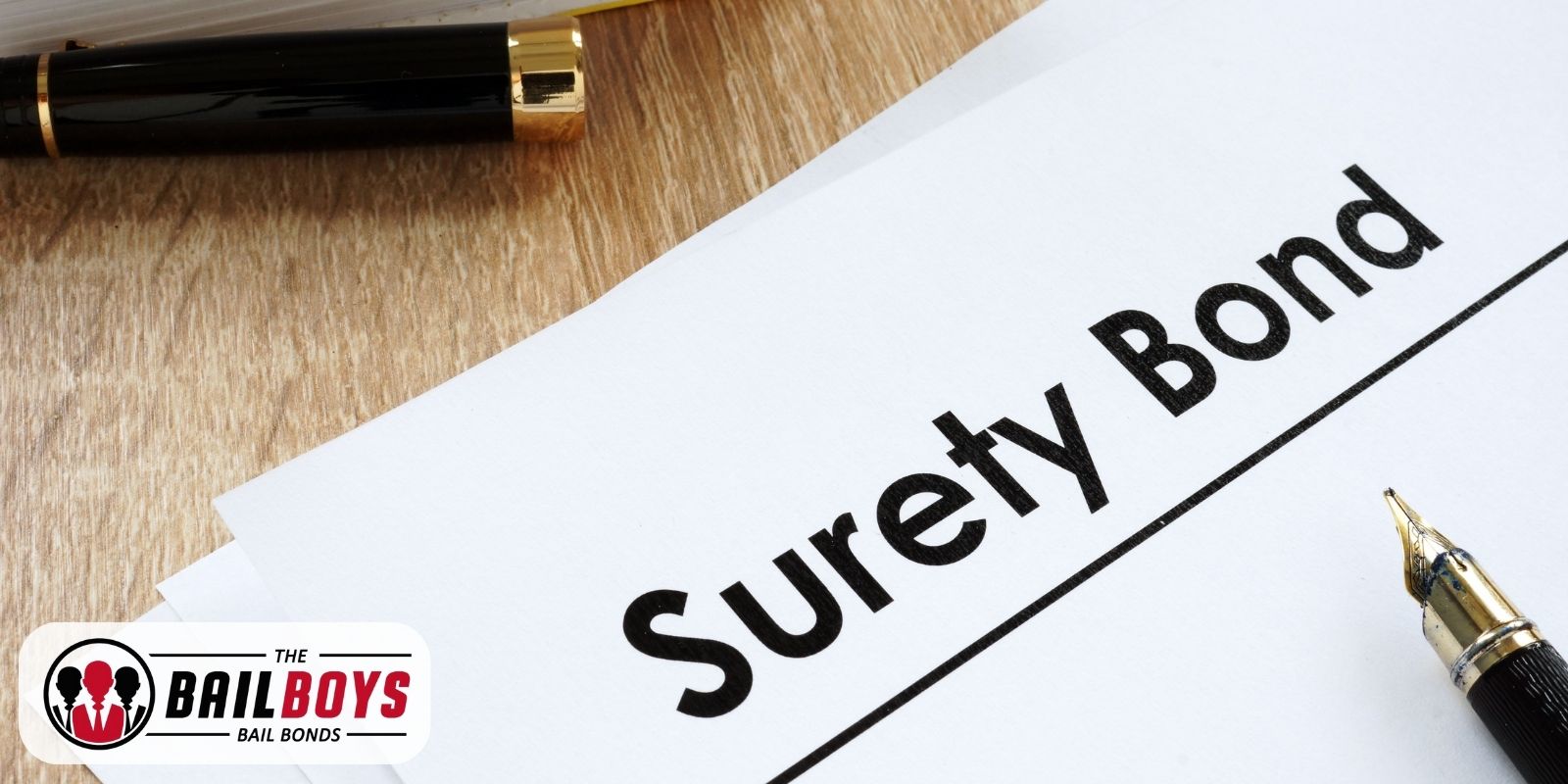
A surety bond is a way to ensure that a person charged with a crime will appear in court without requiring them to come up with the entire bail amount in cash. With a surety bond, the defendant (or their family) pays a smaller fee, called a premium, and sometimes provides some kind of collateral. This makes surety bonds a better option for many people since it lets you avoid the financial burden of the full bail amount.
For those wondering, “What is a surety bond?” jail and legal terms can quickly become confusing – but some simple clarifications can make the process less intimidating.
The Role of a Surety Bond in Bail
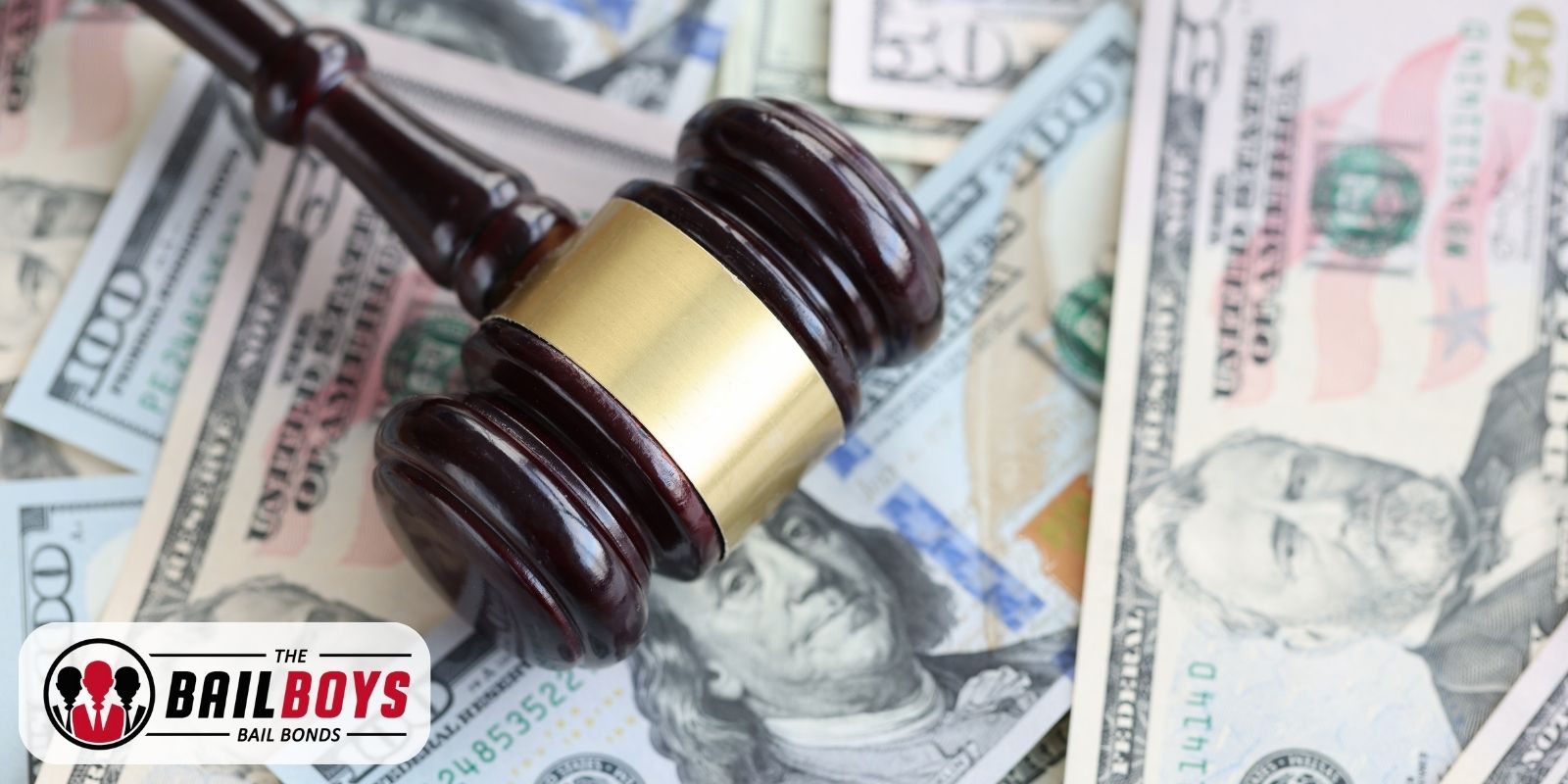
Surety bonds play a crucial role in bail by providing an alternative to the full upfront cash payment usually required.
When defendants cannot pay the entire bail amount, they can turn to a bail bond agent, who will help them get a surety bond. This bond involves a surety company that agrees to secure the bail financially. The defendant pays the bail bond agent a non-refundable premium – usually a percentage of the total bail amount – which acts as the fee for the bail bond service. Additionally, the defendant may need to provide collateral, such as cash, property, or other valuable assets, to further show their commitment to attend all court dates.
This setup allows the defendant to be released from jail and continue their daily life while waiting for trial, making surety bonds a critical component of the legal system for those who cannot afford the full bail amount.
The Parties Involved in a Surety Bond
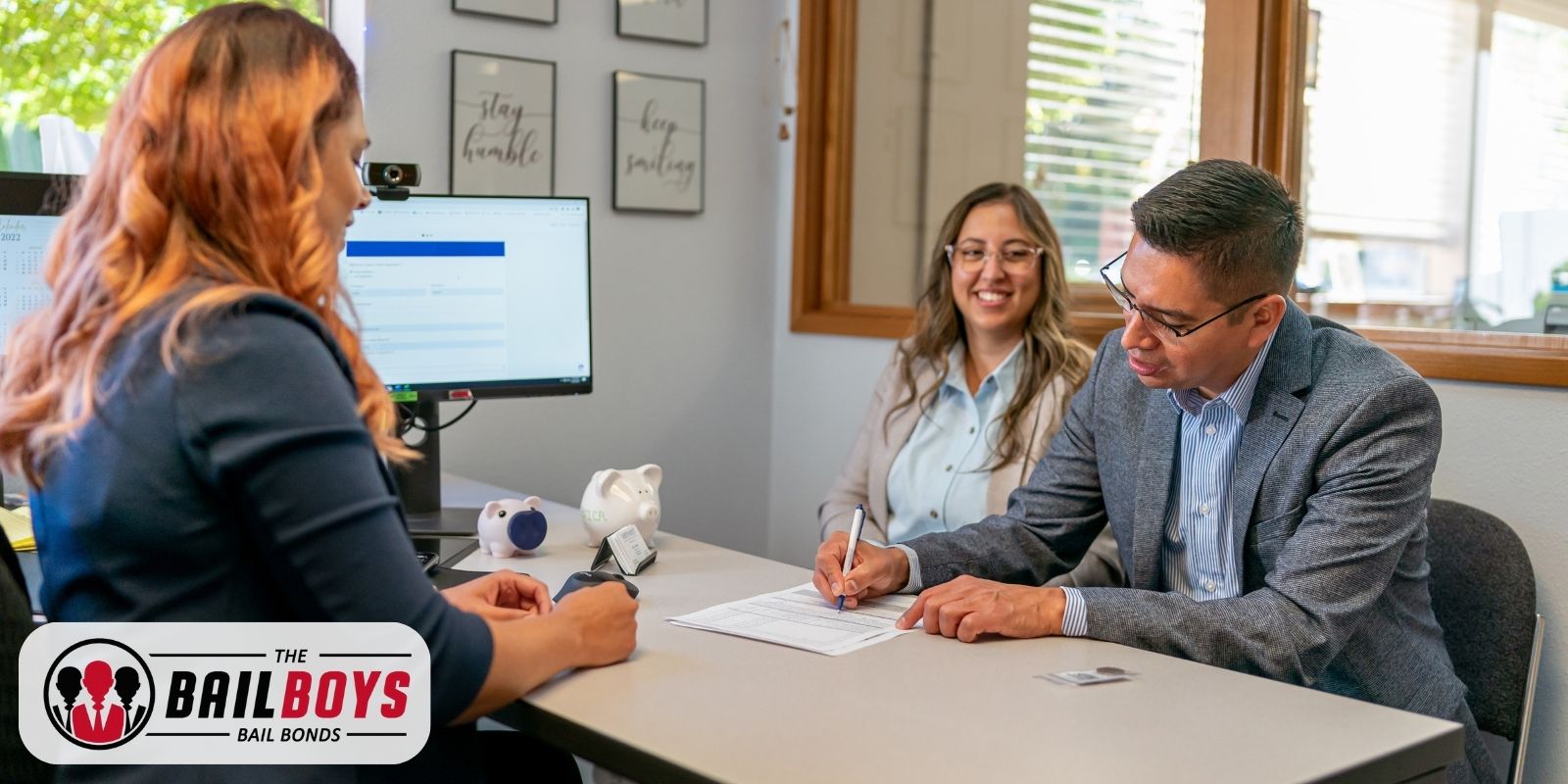
There are three main parties involved in a surety bond:
- The Principal (Defendant): This person has been charged with a crime and is seeking release from jail. The principal is responsible for fulfilling all conditions the court sets, mainly that they will appear at all required court dates.
- The Obligee (Court): The court acts as the obligee, the entity seeking a “promise” that the defendant will attend all required court appearances. By accepting the surety bond, the court is assured that the defendant, otherwise, the surety will fulfill the financial obligations if the defendant fails to comply with the conditions of release.
- The Surety (Bond Issuer): Typically, a bail bond company guarantees to the court that they will cover the full bail amount if the defendant does not fulfill their obligations, such as appearing in court. The surety’s involvement minimizes risk for the court and allows the defendant to remain out of jail during the trial preparation period.
Surety Bonds vs. Cash Bail Bonds
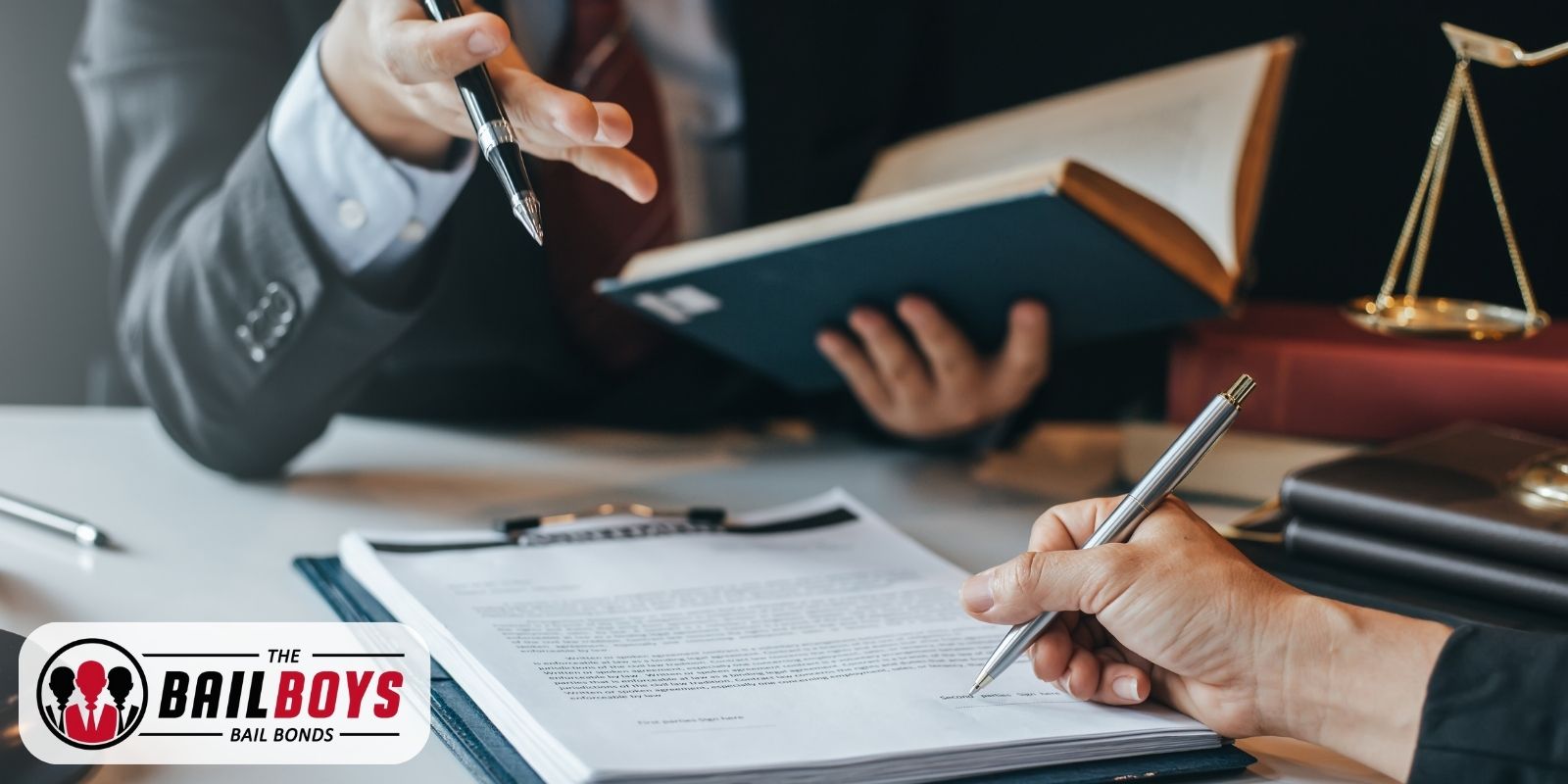
Surety bonds and cash bonds serve the same basic purpose – to ensure a defendant’s return to court – but operate differently.
With cash only bonds, the full bail amount must be paid upfront, which can be financially difficult. The bond is returned only if the defendant complies with all court appearances. In contrast, a surety bail bond requires a premium (a portion of the bail amount) and possible collateral, providing a more affordable and flexible option.
This difference between a surety vs. cash bond makes surety bonds especially helpful for anyone who can’t afford to pay the full bail.
The Cost of a Surety Bond for Bail
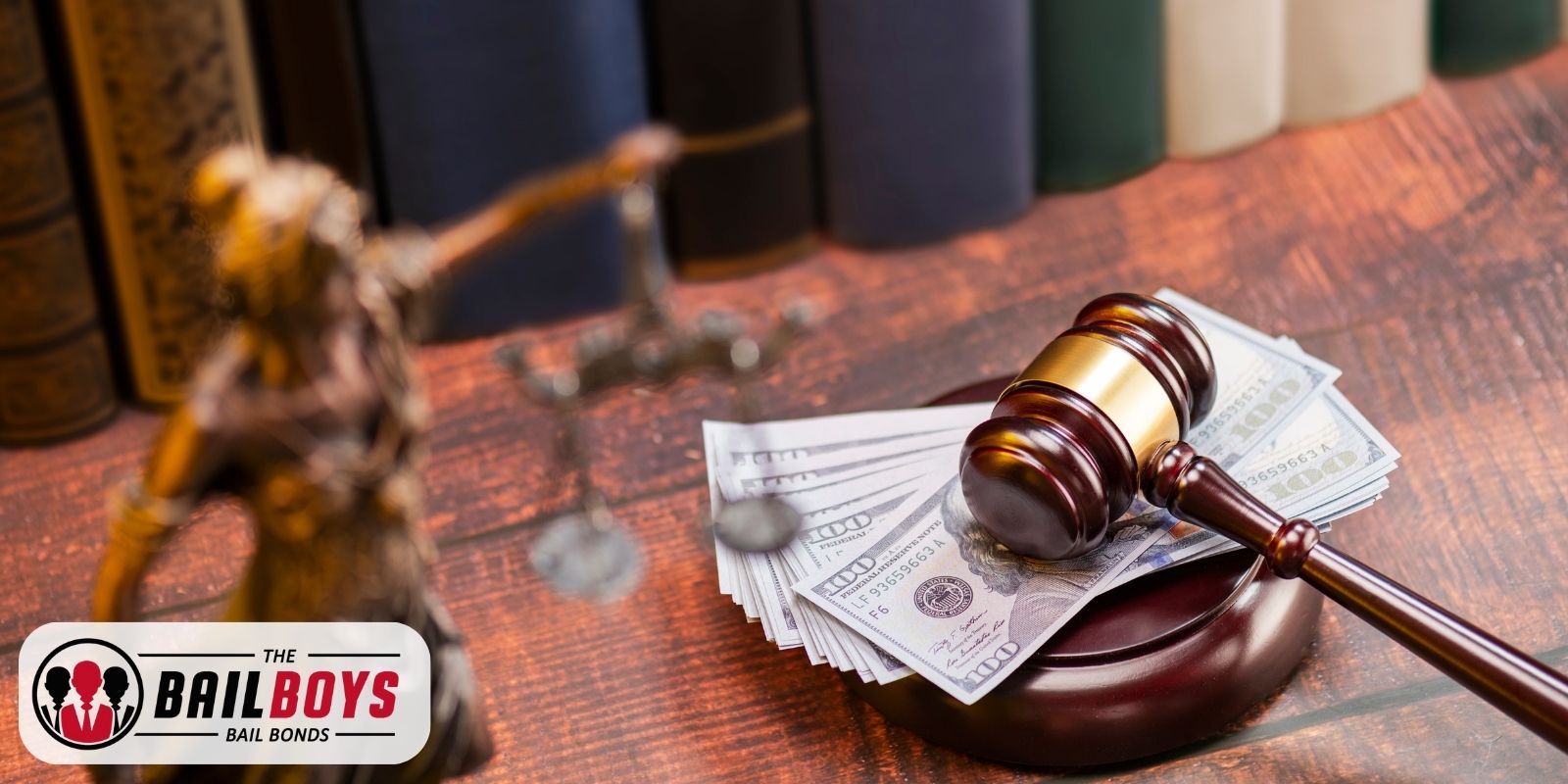
The cost of a surety bond for bail can vary depending on factors such as the state, the bail amount, and the defendant’s credit score. However, the premium typically amounts to 10% of the bail amount, making surety bonds an affordable option for many people.
In the following sections, we’ll dive deeper into the details of premiums and fees, as well as the factors affecting the cost of a surety bond.
Premiums and Fees
Surety bond premiums and fees are typically calculated as a percentage of the total bond amount, usually ranging from 0.5% to 15%. The premium is paid annually for commercial bonds or per project for contract bonds, and the cost of the bond can range from $100 to $1,500 or more, depending on the bond amount and the applicant’s creditworthiness. This flexible pricing structure ensures that a wide range of individuals can secure a surety bond for bail.
In addition to the premium, there may be other fees associated with a surety bond. For example, a bail bond agent might charge an application fee or require collateral. It’s essential to understand these fees and factor them into your overall cost when considering a surety bond for bail.
The Bail Boys Bail Bonds
The Bail Boys Bail Bonds is a bail bond company with over two decades of experience in California, offering comprehensive bail bond services and affordable rates. We specialize in helping defendants get out of jail quickly and easily, providing surety bonds for bail to facilitate the release process. In collaboration with the court system, The Bail Boys Bail Bonds ensures that the bond is duly posted and that the defendant appears in court as required.
When considering a surety bond for bail, it’s essential to choose a reputable and experienced bail bond company like The Bail Boys Bail Bonds. With competitive premium rates and a commitment to providing excellent customer service, you can rely on The Bail Boys Bail Bonds to guide you through the surety bond process with ease and support.
Summary
In conclusion, surety bonds for bail are a viable and affordable alternative to cash bonds, providing financial security and peace of mind for defendants and their loved ones. By understanding the roles and responsibilities of all parties involved in the surety bond process, as well as the risks and potential benefits, you can make an informed decision when seeking a bail bond agent and securing a surety bond for bail.
With trusted companies like The Bail Boys Bail Bonds at your side, navigating the surety bond process becomes much more manageable. As you embark on this journey, remember the importance of research, communication, and collaboration to secure your loved one’s freedom and ensure their appearance in court. Together, you can overcome the challenges and uncertainties of the bail process and secure a brighter future for all.
Frequently Asked Questions
What’s the difference between a surety bond and a bond?
The difference between a surety bond and a bond is that a surety bond involves three parties, the obligee, the principal, and the surety. The surety takes on risk to guarantee payment or performance by the principal to the obligee.
With bonds, there are usually just two parties: the principal and the obligee.
How do surety bonds work?
Surety bonds provide peace of mind for businesses and customers alike, allowing for a trustworthy working relationship between the two. The surety company takes responsibility for ensuring that contractual obligations are met, making sure both parties can do business with confidence.
What does it mean to be bonded under a surety bond?
Being bonded under a surety bond is a promise to fulfill your obligations and be liable for any debts or defaults on those commitments. It is an assurance to the obligee that the principal party will meet their contractual agreement and a guarantee from the surety that they will take responsibility in the event of a default.
The surety bond is a form of financial protection that can be used in a variety of situations, such as construction projects, business transactions, and other contractual agreements. It is a guarantee that the principal party will fulfill its obligations.
How does a bondsman work?
Working with a bail bondsman is a straightforward process. When you contact the bail bondsman, they will ask you to pay a percentage of the total bail amount as a premium fee. After the fee is paid, the bondsman will post the bond in court to secure the defendant’s release.
The bondsman then guarantees that the defendant will show up to their court dates in exchange for the premium.


